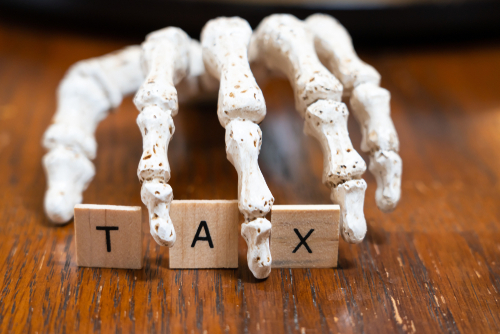Within this new tax year, which started on 6th April, there are a couple of new ways in which you could potentially pay more tax.
National Insurance (NI) is rising, but the threshold at which it starts to be paid will also be raised. NI is set to rise by 1.25% from April and this will affect everyone under state pension age earning more than £823 per month, the equivalent of an annual salary of around £9,880. This rise was confirmed in the recent Spring Statement; however, the Chancellor also confirmed that the threshold for paying NI will rise from 6 July 2022, meaning that you will only start paying NI once you earn more than £1,047 a month or the equivalent of £12,570 a year.
These changes mean that around 70% of workers will pay less NI next tax year than this year. The tipping point comes at just over £40,000, meaning that someone earning £50,000 per annum will still pay £197 more than they do right now.
Annoyingly the Personal Allowance, the amount you can earn before paying tax, has been frozen at £12,570. The upper thresholds have also been frozen, meaning that the starting point for 40% tax has been stuck at £50,270 and the additional rate threshold has not moved from £150,000 since it was introduced in 2010!
Some estimates suggest these freezes will see the number of workers paying the basic rate increase by as much as 5 million to 37 million workers by 2025/26 and the number of higher rate taxpayers is predicted to double to 8 million. It is projected that this could generate as much as an additional £40 billion for the Exchequer.
For those making more than £2,000 per tax year in dividends outside an ISA, pension or through dividends from your own business you will face an increased tax charge. Basic rate taxpayers will see this figure rise from 7.5% to 8.75% from April 2022. For higher and additional rate taxpayers this will rise to 33.75% and 39.35% respectively. These rises are set to cost investors a whopping £815 million this year alone.
Council tax is also rising in the UK. The amount of tax paid varies based on where you live but for many it is likely to rise by at least 2.99% from April. Although this does not sound like a lot, it all starts to add up, meaning that the average tax on a house in band D will rise by £56.94, from £1,898 to £1,955, next year.
Capital Gains Tax (CGT) for property investors has changed. With house prices rising by 10.8% in 2021, this is going to mean higher CGT bills for second property investors who sell up. The CGT threshold has also been frozen, so if you realize more than £12,300 in capital gains in a single tax year you will be paying more tax.
The Inheritance Tax Nil Rate Band will remain the same at £325,000 and the Residence Nil Rate Band at £175,000 for the next tax year. Meanwhile, the IHT annual gift allowance is spending its fourth decade at £3,000. Given how house prices are rising it means more estates will have more inheritance tax to pay and by 2025/26 the government estimates that this freeze will raise an extra £445 million a year.
The last point, which is very pertinent at the moment, is that increasing inflation means paying more VAT. Higher prices automatically translate into paying more VAT. With prices climbing for everything from furniture to fashion the tax on everything is on the rise too.
You can see the impact of rapidly rising prices by looking at what happened to petrol. For instance, VAT is charged at 20% on petrol, which has typically been around 120p per litre over the past three years. During early March fuel prices were around 158p per litre. The extra VAT alone has added £3.30 to the cost of filling up a 55-litre tank.
However, the Chancellor announced that he would ease some pressure by confirming that fuel duty would be cut by 5p per litre until March 2023.
All in all, the tax increases come at the worst time for British taxpayers, who are being faced with extreme price rises for basics such as fuel, heating and food. It shows the importance of optimizing your finances to pay the least tax possible, whilst generating the best returns on your investments to counter inflation. If you would like help in optimizing your situation, then please get in contact with us and one of our Wealth Strategists will be able to assess your situation.




















































